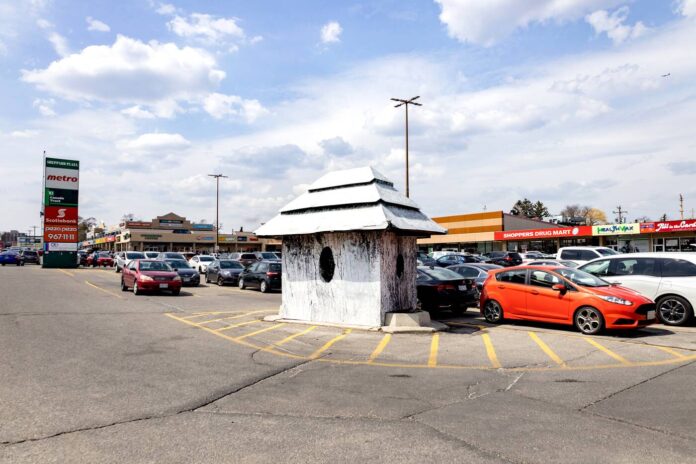The mid-20th century was an era of immense growth and change in Toronto as the suburbs expanded outward in a car-driven post-war boom of subdivisions, freeways, and shopping malls.
Malls and plazas became de facto plazas in then-sparsely built suburbs, many of which remain hubs for their communities to this day, such as Sheppard Plaza on the northwest corner of Bathurst and Sheppard in the former suburb of North York.
Built in 1959, the plaza opened amid an onslaught of similar suburban shopping clusters built to accommodate the city’s outward expansion and remains a staple of the Bathurst and Sheppard communities over half a century later.
But Sheppard Plaza’s continued presence in the area hasn’t come without changes, one of which stands out like a sore thumb in the plaza’s parking lot.
Repurposed Fotomat driveway in Sheppard Plaza parking lot. Photo by Fareen Karim.
A small, seemingly abandoned shack stands at the edge of the car park near the Bathurst and Sheppard junction. It blends into the square’s urban white noise, but this odd little shack is actually an important relic of history, having been one of the square’s busiest spots decades earlier.
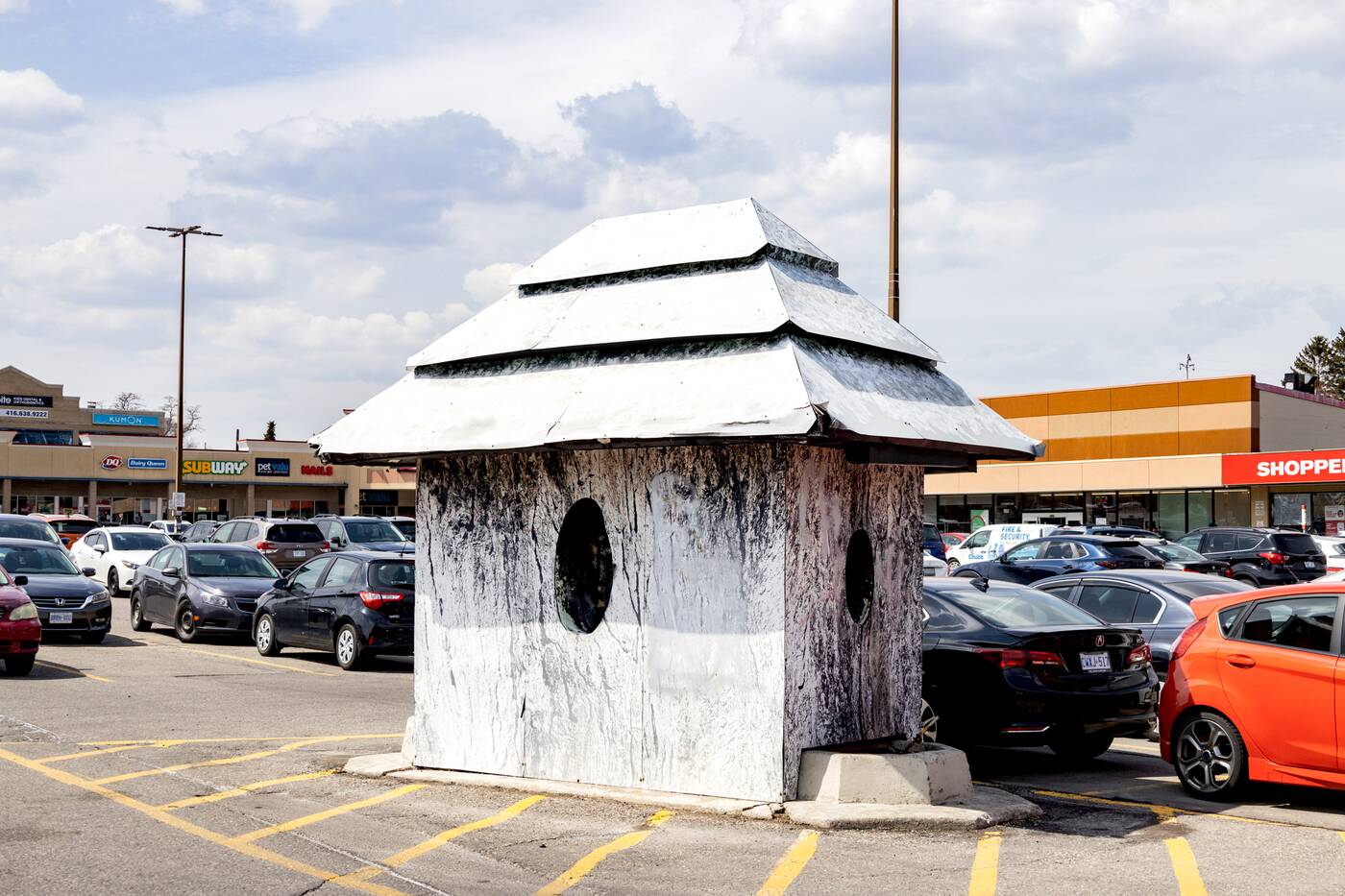
This former Fotomat drive-thru was installed in the years after Sheppard Plaza was built in 1959. Photo by Fareen Karim.
The shack was actually a later addition to the plaza, introduced in the decade after it opened as part of a then rapidly expanding chain of photo development drive-through kiosks known as Fotomat.
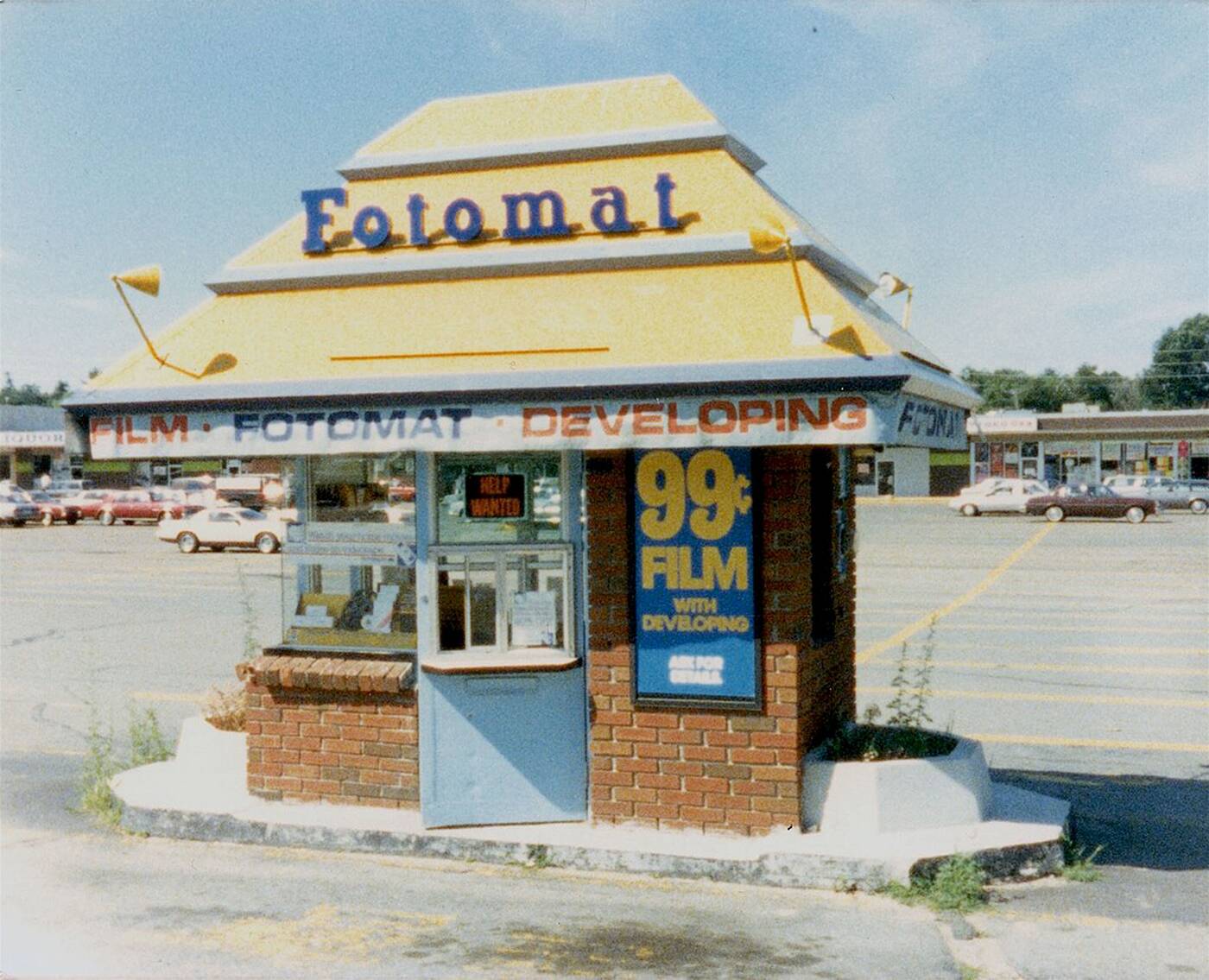
This Massachusetts Fotomat kiosk, photographed in 1987, offers an idea of what the Sheppard Plaza site looked like in its better days. Photo via Wikimedia Commons.
The California-based chain spread to parking lots in malls and plazas across the continent, including a location at Sheppard Plaza housed in the now-abandoned-looking booth.
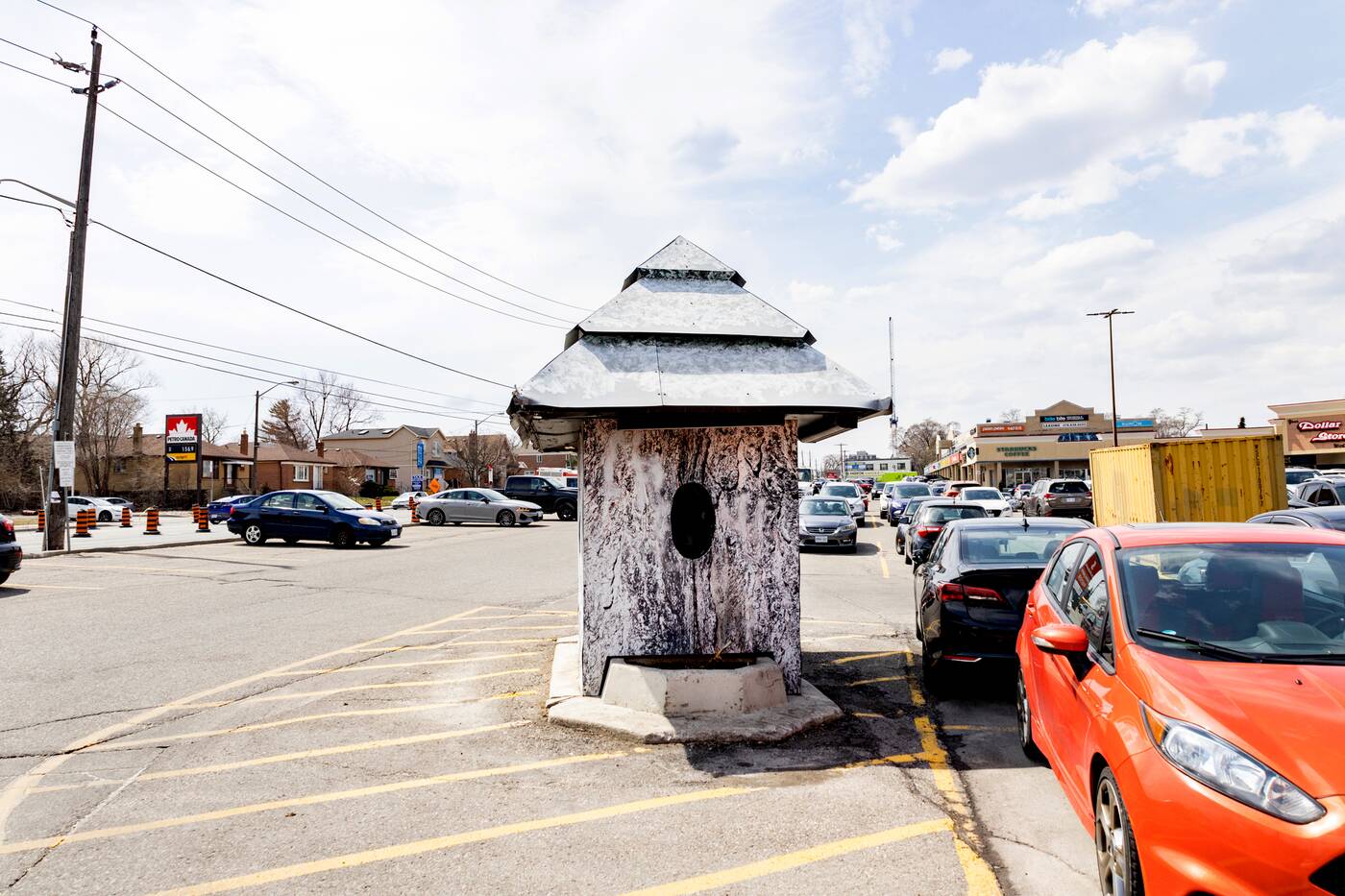
The concrete base and three-tiered pyramidal roof are telltale signs of the original Fotomat kiosk. Photo by Fareen Karim.
There were other Fotomat locations in Toronto, including one on the corner of Richmond and Victoria in the heart of the city.
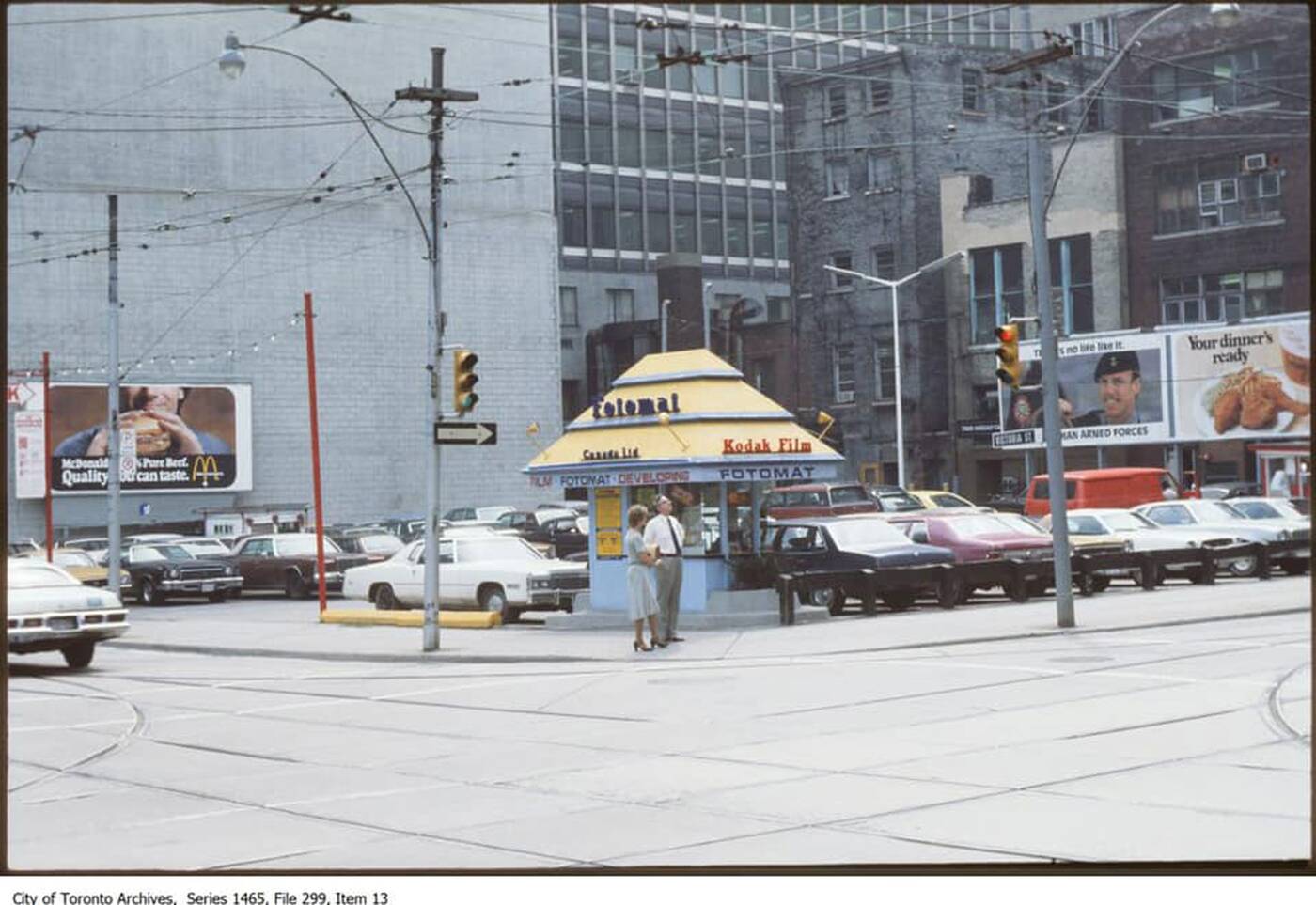
A long-distant Fotomat kiosk in Richmond and Victoria. Photo via Toronto Archives.
By the late 1980s, the rise of the one-hour photo business—made possible by a machine called the Minilab—rendered Fotomat’s business model obsolete.
The brand would live on as a digital photo processing website until 2009, but the stands have all been repurposed or demolished since then. In some cases, Fotomat booths have been repurposed into drive-through cafes and other businesses requiring minimal overhead, but the Bathurst and Sheppard locations would meet a different fate.
After years of disuse, the former Fotomat stand was brought back to life in 2011 when artist Stephen Cruise transformed the building into a sort of tree house with his installation “Share the Moment”.
The project transformed the building into a natural-looking exterior, but the iconic three-tiered pyramidal roof once featured on Fotomat huts across North America is a telltale reminder of an era before telephone tography and the instant gratification of cameras with preview screens.
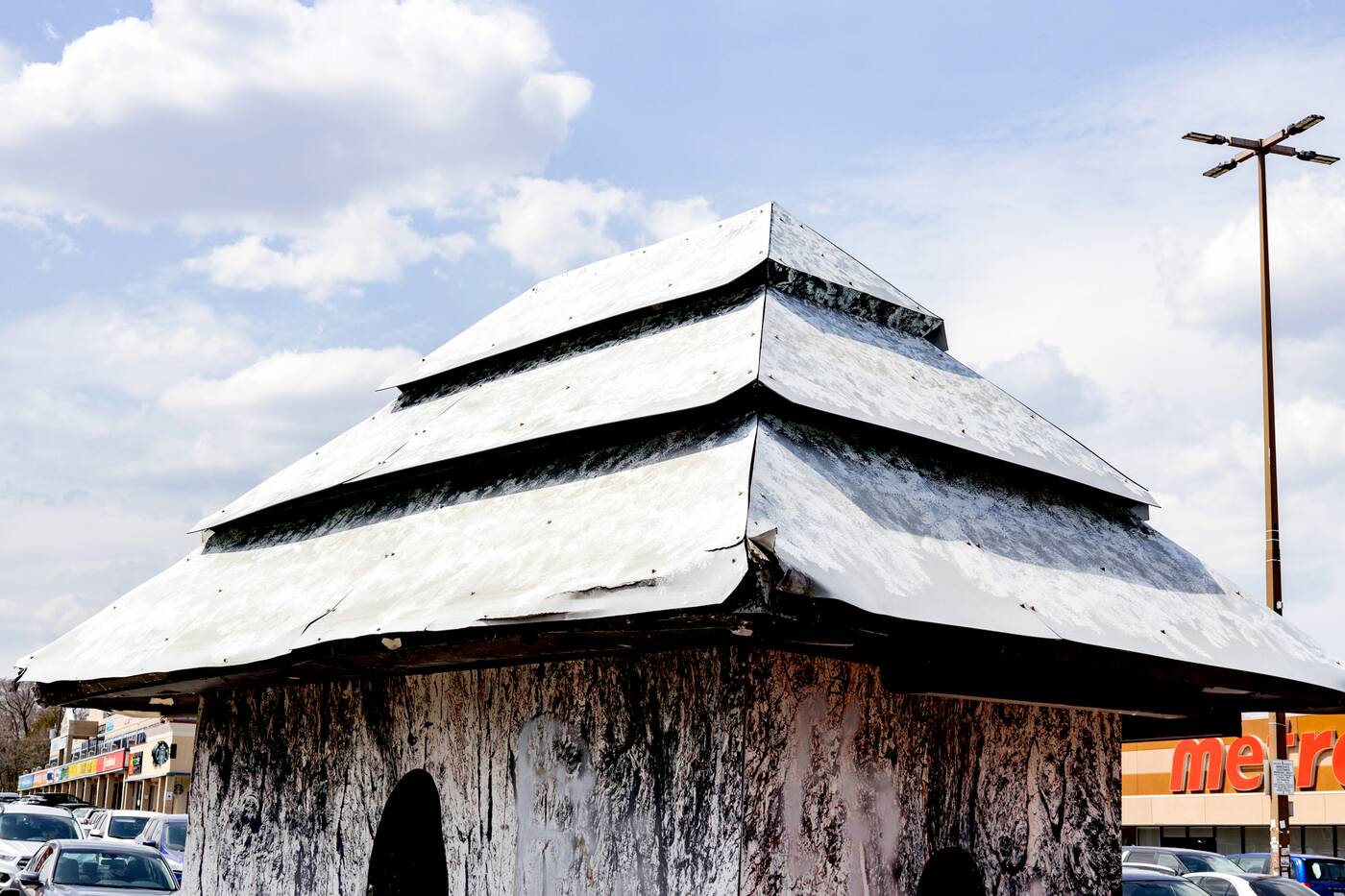
The pyramid-style roof has seen better days but retains its iconic shape. Photo by Fareen Karim.
Well over a decade old, the art installation is beginning to show signs of aging, opening the door to a new era of opportunity for this parking lot shack.















